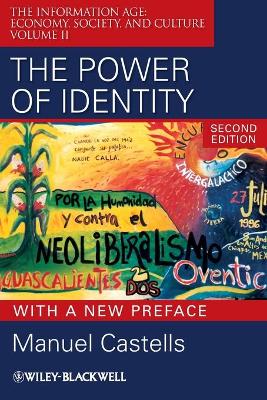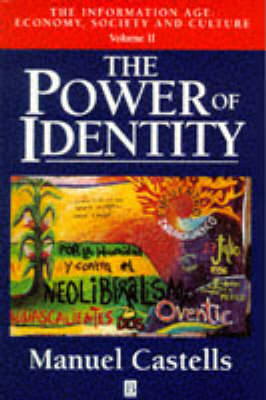The information age: economy, society & culture
2 total works
In this second volume of The Information Age trilogy, with an extensive new preface following the recent global economic crisis, Manuel Castells deals with the social, political, and cultural dynamics associated with the technological transformation of our societies and with the globalization of the economy.
- Extensive new preface examines how dramatic recent events have transformed the socio-political landscape of our world
- Applies Castells’ hypotheses to contemporary issues such as Al Qaeda and global terrorist networks, American unilateralism and the crisis of political legitimacy throughout the world
- A brilliant account of social, cultural, and political conflict and struggle all over the world
- Analyzes the importance of cultural, religious, and national identity as sources of meaning for people, and its implications for social movement
- Throws new light on the dynamics of global and local change
Vol 2
This is an account of the two great and conflicting trends now shaping the world: globalization and identity. The information technology revolution and the restructuring of capitalism have induced the network society, and ushered in the globalization of strategic economic activities, flexibility and instability of work, and a culture of real virtuality. But alongside the transformation of capitalism and the demise of statism there has been a powerful surge of expressions of collective identity. These challenge globalization on behalf of cultural singularity and control over life and environment. Manuel Castells describes the origins, purpose, and effect of proactive movements, such as feminism and environmentalism, which aim to transform human relationships at their most fundamental level: and of reactive movements that build trenches of resistance on behalf of God, nation, ethnicity, family, or locality. The fundamental categories of existence, the author shows, are threatened by the combined, contradictory assault of techno-economic forces and transformative social movements, each using the new power of the media to promote their ambitions.
Caught between these opposing trends, he argues, the nation-state is called into question, drawing into its crisis the very notion of political democracy. The author moves thematically between the United States, Western Europe, Russia, Mexico, Bolivia, the Islamic World, China and Japan, seeking to understand a variety of social processes that are, he contends, closely inter-related in function and meaning. This is a book of profound importance for understanding how the world will have been transformed by the beginning of the next century.
Caught between these opposing trends, he argues, the nation-state is called into question, drawing into its crisis the very notion of political democracy. The author moves thematically between the United States, Western Europe, Russia, Mexico, Bolivia, the Islamic World, China and Japan, seeking to understand a variety of social processes that are, he contends, closely inter-related in function and meaning. This is a book of profound importance for understanding how the world will have been transformed by the beginning of the next century.

